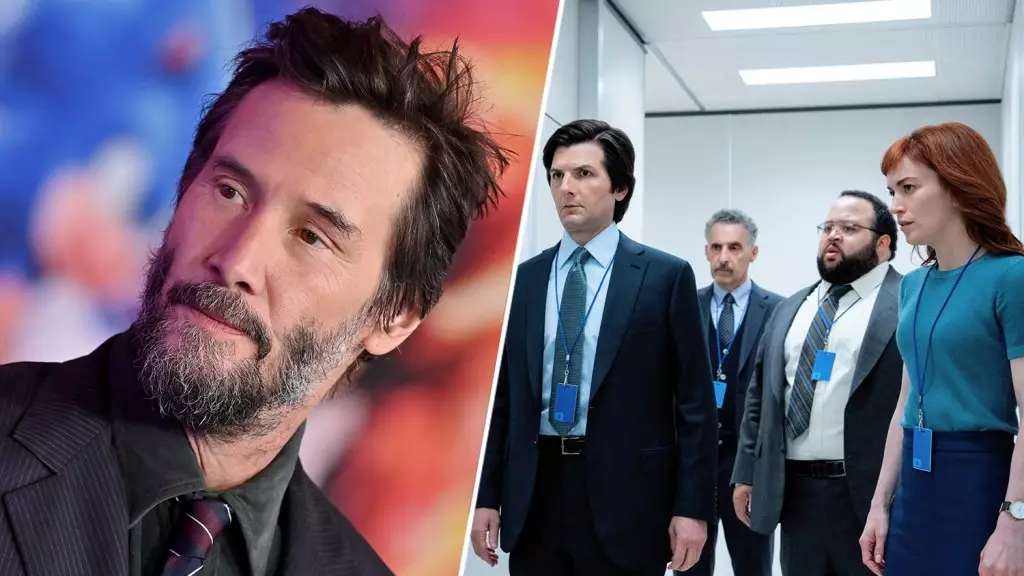The return of “Severance,” Apple TV+’s critically acclaimed sci-fi thriller, is marked by a unique voice cameo that resonates deeply with viewers: Keanu Reeves. The enigmatic voice introduces the episode with a “Lumon is Listening” message, an interaction that perfectly encapsulates the show’s surreal approach to corporate life. Series creator Dan Erickson’s intention behind casting Reeves highlights the importance of familiarity in storytelling. By selecting a voice that not only possesses warmth but also evokes certain associations, the series effectively sets the tone for a workplace that is both inviting and unsettling. This blend of familiarity and estrangement serves as a powerful lens through which to view the challenges and absurdities of modern corporate culture.
At its core, “Severance” presents a society where employees are surgically severed from their memories of personal lives to enhance productivity in their professional environments. The narrative’s exploration of this drastic measure invites viewers to reflect on the lengths to which organizations will go to optimize efficiency. In the new season, main character Mark (portrayed by Adam Scott) and his colleagues grapple with the profound implications of their severed identities. The stakes are raised significantly, revealing not just the discomfort of their existence but the dire consequences that ensue when individuals begin to push against the boundaries of their imposed reality.
The timing of “Severance” Season 1’s release, coinciding with the initial phases of post-pandemic office returns, provided a unique backdrop that resonated with many viewers. Erickson’s observations about the evolving attitudes towards work reflect broader societal trends, including the Great Resignation, which saw many questioning the traditional role of work in their lives. The ongoing conversation around work-life balance and personal fulfillment has transformed the landscape in which “Severance” operates, creating a rich tapestry for storytelling. Fans are not merely engaged with a dystopian narrative but find themselves challenging and reassessing their perspectives on work conditions and corporate identity.
As the narrative unfolds through its 10-episode arc, “Severance” carefully interrogates what happens when individuals strive to reclaim their identities in a system designed to eradicate the concept of “self.” The psychological and ethical dilemmas posed by severance mirror contemporary discussions about autonomy and well-being in workplace settings. By positioning the characters at the intersection of memory and identity, the series invites viewers to ponder what life could look like beyond a rigid, traditional work environment.
Erickson’s musings on the relationship between the show’s narrative and real-world employment challenges raise poignant questions: Can individuals redefine their relationship with work? What are the implications of moving away from an outdated system? As the characters of “Severance” navigate their dark and surreal corporate maze, viewers are also encouraged to consider the paths to meaningful work and authenticity away from the confines of oppressive structures. The journey ahead promises to be as reflective and thought-provoking as the themes that season two brings to the screen, ensuring “Severance” remains a significant commentary on modern corporate existence.

